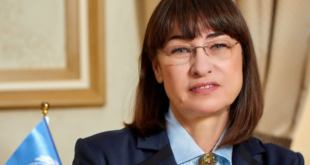Egypt celebrated the birth of former president Anwar Al-Sadat 100 years ago at the end of December, with observers agreeing that Egypt is still enjoying the legacy of his rule, writes Gamal Essam El-Din
Gamal Essam El-Din
President Abdel-Fattah Al-Sisi hailed the bravery and far-sighted vision of former president Mohamed Anwar Al-Sadat in a speech to the nation on 25 December. “Sadat was a man of war and peace. For him, the 1973 War was not an end in itself, but was necessary to pave the way for achieving peace in the region,” Al-Sisi said.
In a ceremony marking a century since the birth of the first Arab Nobel Peace Prize laureate, Al-Sisi said that “the glorious October War took place in very hard conditions and under enormous pressures, but president Sadat stood firm, impressing the world with this war that restored dignity and honour to Egypt and the Arab world.”
Sadat was the third president of Egypt, serving from 15 October 1970 until his assassination by Islamist extremists on 6 October 1981.
Al-Sisi said that although Sadat had died 37 years ago, his legacy continued to inspire Egypt and Egyptians. “The legacy of this Egyptian hero and peacemaker will continue for many more years to come,” Al-Sisi said.
Speaker of Parliament Ali Abdel-Aal said in a statement on 24 December that Sadat had devoted his life to Egypt and the cause of peace. “He took office in a critical situation, but with patience and resilience he was able to turn despair into hope. He deserves to be remembered in history as Egypt’s great peacemaker,” Abdel-Aal said.
“Sadat’s legacy of realistic and patriotic policies, putting Egypt’s interests as their top priority, will continue to inspire us,” he added.
Sadat was born on 25 December 1918 in Mit Abul-Kom, a village in the Nile Delta governorate of Menoufiya, to a poor family of Nubian origin. He was one of 13 brothers and sisters.
After Egypt signed the 1936 treaty with Britain, Sadat, along with many other young men from the middle classes, was allowed to join the then Royal Military Academy in Cairo. While there, he met late president Gamal Abdel-Nasser, and along with other junior officers they formed the secret Free Officers Movement that deposed king Farouk in 1952 and turned Egypt into a republic in 1953.
Sadat graduated from the academy in 1938 and was appointed to the Signal Corps. In 1943, Sadat, a second lieutenant at the time, was imprisoned by the British for his efforts to give help to the Germans to expel the occupying British forces from Egypt.
In 1946, he was imprisoned again, this time on charges of assassinating minister of finance Amin Osman. After he was acquitted of the charges, Sadat was pardoned by king Farouk and rejoined the army.
In 1953, Sadat was appointed editor of the mouthpiece of the 1952 Revolution Al-Gomhouriya. In 1959, Sadat was made secretary-general of the National Union, Egypt’s single political party at the time.
He was appointed speaker of parliament, the Maglis Al-Umma, from 1960 to 1968. In December 1969, 10 months ahead of Nasser’s death, Sadat was appointed sole vice-president. He became president on 15 October 1970.
Political analysts agree that many of the policies currently pursued in Egypt are part of Sadat’s legacy. Al-Ahram political analyst Gamal Abdel-Gawwad told Al-Ahram Weekly that Sadat had contributed an enormous amount to Egypt.
“But his contributions were not enough to place Egypt on the road to democracy and prosperity,” Abdel-Gawwad said, arguing that “foreign policy took much of Sadat’s time and energy. In the early years of his presidency, Sadat was preoccupied with liberating Sinai which Israel had occupied in the 1967 War. After he had achieved victory in 1973 and signed the peace treaty with Israel in 1979, he led the country to dependence on the United States.”
“Sadat used to say that America holds 99 per cent of the cards in the Middle East game, and this led him to be subservient to America’s interests, particularly after the Arabs decided to impose a boycott on Egypt on the eve of signing the peace treaty with Israel in 1979,” Abdel-Gawwad added.
Mustafa Kamel Al-Sayed, a political science professor at the American University in Cairo (AUC), said that “after the Arabs boycotted Egypt, Sadat was not able to find salvation outside America, and so he embarked upon what some call ‘the Americanisation of Egypt’.”
“When Hosni Mubarak came to power after Sadat’s assassination in October 1981, he had no choice but to pursue Sadat’s credo that Egypt cannot prosper without the US. However, Mubarak paid a heavy price after America let him down in 2011 and helped the Muslim Brotherhood take power in 2012,” Al-Sayed said.
Abdel-Gawwad said, “America’s pressure on Egypt in the area of democracy and human rights led President Abdel-Fattah Al-Sisi to depart from Sadat’s ‘yes to America’ policies. Although Al-Sisi has been keen to declare that Egypt wants a strategic relationship with America, he has also been trying to build partnerships with other world powers, particularly Russia and China.”
“Many policy-makers in Egypt believe that America is no longer a reliable friend, particularly as many believe that the former administrations of George W Bush and Barack Obama sought to put the Muslim Brotherhood in power in Egypt.”
In a court hearing on 26 December, former president Hosni Mubarak was asked whether he had information when in power that “America and the Muslim Brotherhood had coordinated to help the group reach power.”
He said he would need approval from the National Security apparatus before answering this question. “There is secret information which needs prior permission,” Mubarak said.
Many political analysts also blame Sadat for the rise of Islamist movements in the Arab and Muslim world. After reaching an agreement with the International Monetary Fund (IMF) on subsidy cuts in January 1977, Sadat faced food riots in Egypt.
“But instead of reacting by liberalising politics and moving towards secular democracy, Sadat chose to use religion and the Islamist movements to close in on his Marxist and communist foes,” Abdel-Gawwad said. “Although Sadat used to say that he never trusted the Muslim Brotherhood, he was forced to resort to the old game of using the group to break up his foes.”
“When Mubarak came to office in 1981, the Brotherhood became a larger force, and though he tried his best to contain them they were able to reach power at his expense in 2012,” Abdel-Gawwad added.
“Had Sadat not released the group’s leaders from prison and showed tolerance of its activities, Egypt would not have faced the terror it has encouraged and trouble in both political and economic terms,” he said.
Al-Sayed also believes that although Sadat’s 1977 agreement with the IMF ended in Egypt’s worst-ever food riots, “most of those who came after Sadat had no choice but to seek the IMF’s help when the country faced a severe economic crisis.”
“Mubarak signed an agreement with the IMF in 1990, which led to a massive wave of privatisations and a departure from Nasser’s public-sector policies. In 2016, the government under President Al-Sisi signed a new deal with the IMF after five years of political upheaval had left the country on the verge of bankruptcy.”
“President Al-Sisi himself has said that Sadat’s agreement with the IMF was a very sound move, but it was not prepared well and took people by surprise. Had we had moved on the road of subsidy cuts then, we would not have faced the economic difficulties we face now,” Al-Sayed cited Al-Sisi as saying.
On 14 December, the American Embassy in Cairo announced that late president Sadat would be awarded the US Congressional Gold Medal. The embassy said US President Donald Trump had signed into law an act giving the posthumous award to Sadat in recognition of his “heroic achievements and courageous contributions to peace in the Middle East.”
Sadat is the first Arab person to be awarded the medal.
He was jointly awarded the Nobel Peace Prize with Israel’s former Prime Minister Menachem Begin in October 1978 after negotiations for a peace treaty were begun between the two countries.
The text of the current US act notes “president Sadat is recognised in the United States and throughout the world as a respected leader and champion of peace whose vision provided a roadmap for the peaceful resolution of conflict that endures nearly 40 years after its inception. President Sadat bravely reached out to Israel and dedicated himself to peace, furthering the national security of Egypt and the stability of the Middle East.”
It concludes by noting “the Camp David Accords and the peace treaty continue to serve the interests of the United States by preserving peace and serving as a foundation for partnership and dialogue in a region fraught with conflict and division.”
From: Al-Ahram Weekly






